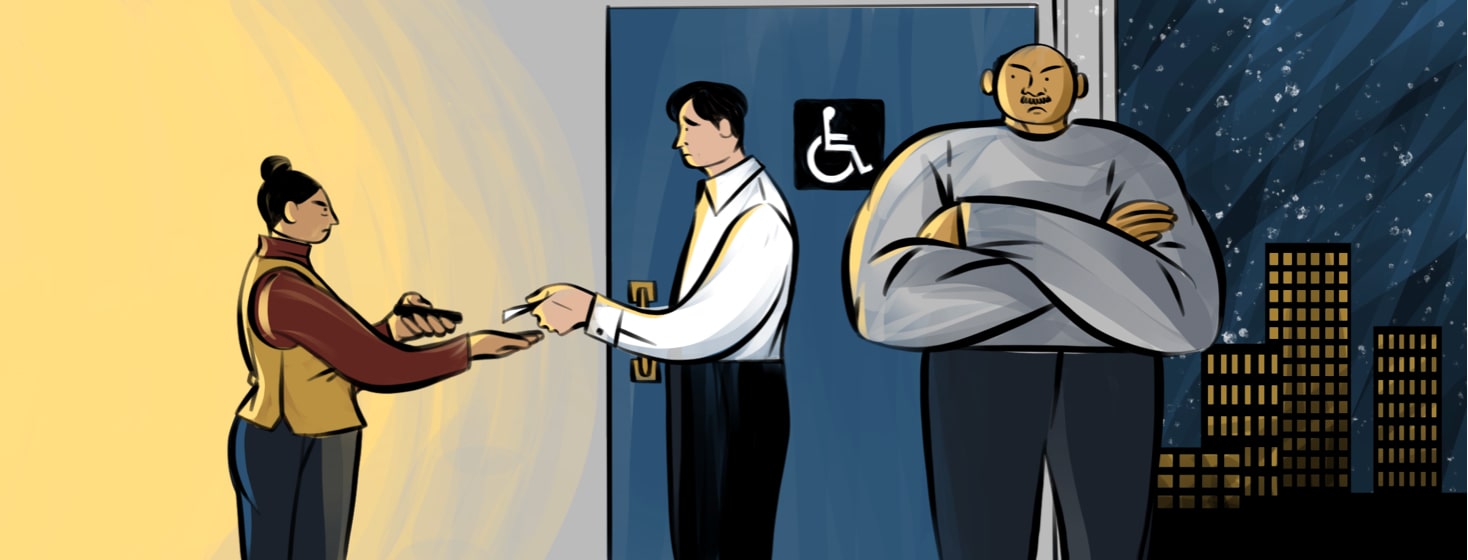Rheumatoid Arthritis and Shame
Shame. It goes hand-in-hand with rheumatoid arthritis, chronic illness, and disability. Every day, we get one thousand little subconscious hints that we should hide our illnesses and feel embarrassed about being disabled and even the strongest among us eventually falls prey. It’s like being told every day that Brussels sprouts are actually good – you may have started out as the most anti-sprout person in existence but after a few years of being bombarded every night about the goodness of sprouts, you are eventually going to try one.
It’s human nature and it works the same way with RA and disability – the shame eventually, umm, well, sprouts. Ha! That wasn’t even planned, I swear.
My joint damage is disabling
Living with a chronic illness like RA for years eventually leads to joint damage, and that joint damage, unfortunately, will eventually lead to a permanent loss of motion or function which, for all intents and purposes, is a disability.
Well, I hate to be the bearer of bad news, but society has a very specific idea of what you should look and act like once that happens. That’s right, pretty much everyone else besides you knows exactly what you should do when you are living with rheumatoid arthritis. This is where the shame comes in.
Feeling shame when asking for help
The reason I’m thinking about this now is that I was out a few weeks ago attending a Christmas concert, as we do most years. It’s usually something high-concept or sophisticated like the NY Philharmonic or the Nutcracker – you know, the type of thing you love to tell people you did but don’t actually enjoy sitting through. A show-off show, if you will. Yeah, you know what I mean.
Anyway, we showed up at the venue and there was a line around the block so we asked if there was a disability entrance. I couldn’t stand for an hour in the cold on my bad ankle. Of course, there was because it’s Manhattan and they have an entrance for everyone, everywhere. We went in and it was at this point that my brain kicked over into shameful stereotype mode for a few minutes.
Trying to fit into the stereotypes
As I was walking past the security guards at the “disability entrance” (let’s not even get started on the fact that it’s called the disability entrance and not just, um, entrance), I immediately thought, “Maybe I should throw on a serious limp to make sure they know I’m really disabled. I don’t want to be embarrassed.” Yeah, I know.
I actually considered for a few minutes exaggerating my disability since I was having a pretty decent day, RA-wise, just so I conformed a little bit better to what the people there think a disabled person should look like. I mean, I already wasn’t in a wheelchair so in most people’s minds that automatically makes me suspect and I didn’t want them to think I was lying. I’d be mortified if that happened, right?
Featured Forum
View all responsesI felt like I had something to prove
These are the thoughts that went through my head as I was entering into the venue and, for a minute or two, I was so worried that they’d think I was lying that I forgot that I, um, WAS ACTUALLY DISABLED. Yeah, I wasn’t lying because I have 30-plus years of RA joint damage in my body and if that wasn’t enough, I am actually, officially, disabled.
Imagine that – I was so scared of them thinking I was faking a disability that my mind just forgot I actually was. If anyone had the balls to actually ask me if I was disabled, I could pull out the litany of symptoms and co-morbidities that I’ve had to deal with as well as the physical deformities that are evident as soon as anyone gets up close. I could drown them in paperwork that would take them an entire generation of their family tree to read. I could call 1 of the 11 doctors I have on speed dial to verify as I am on a first-name basis with most because I’ve single-handedly paid for their vacation homes. I. Was. Not. Lying... but still, I felt like I had to prove I was so that I wasn’t ashamed.
Living with an invisible illness is tough
This is what happens when you live day in and day out with a chronic illness like rheumatoid arthritis. You feel guilt, sadness, and especially shame – shame because the world tells you a disability is something to hide but if you do decide to show it, you better be armless, legless, in a wheelchair, and have to speak using a robot voice.
If you’re not, then why did you even bring it up? You can still walk, you can still talk, you can still do everything anyone else can, how are you disabled? You should be ashamed for using it as an excuse. So, we feel shame, even if it’s just for a few minutes, as wrong as it is, and even I am susceptible to it.
We shouldn't feel shame when asking for help
So, what do we do? When you have a chronic illness, you already have to deal with the full range of emotions on a daily basis so how do you fight off the shame, too?
Well, the truth is you probably can’t, and you’ll fall victim to it from time to time. Does it stink? Yes, but it’s true. The thing is, you just have to remind yourself that you are chronically ill, you are disabled, and you are just as entitled to use services and accommodations as anyone else, and you don’t need to prove it to anyone. Hopefully next time it happens to me, I can do the same. Talk soon.

Join the conversation